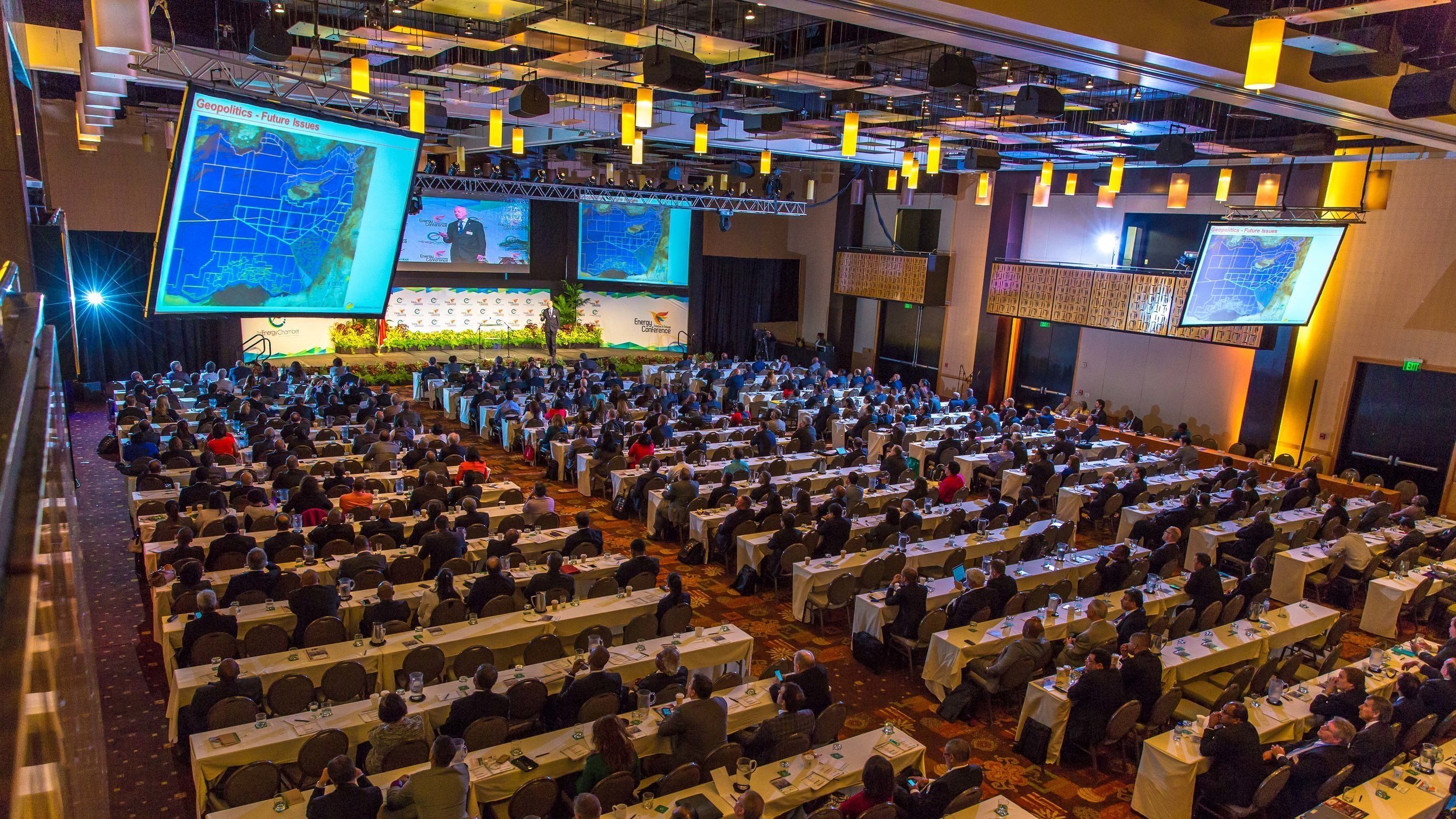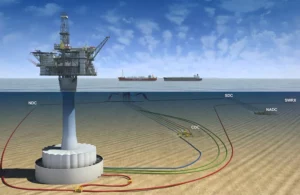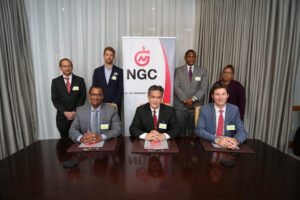
(The Energy Chamber, 31.May.2022) — What follows is Chairman Dwight Mahabir’s address at the opening ceremony of the TTEC 2022 in Port of Spain, Trinidad and Tobago.
Ladies and Gentlemen:
It is great to be back here in person at the T&T Energy Conference.
The past two and a half years since the last in-person event have been a very turbulent time. We have experienced:
- a global pandemic – which continues to impact how we operate
- serious supply chain disruptions, and
- more recently massive geopolitical upheavals.
We have gone from negative oil prices to historic highs in just two years.
While the push in Europe to find alternatives to Russian gas and oil has refocussed attention on fossil fuels, the longer-term climate imperative remains firmly in place and is driving long-term strategy. Just six months ago the imminent end of the fossil fuel era was a frequent topic of conversation. While there now seems to be a more balanced view, as an oil and gas-based economy we must not let the current geopolitically driven high price environment lull us into any false sense of security.
With so much uncertainty it is sometimes difficult to chart a course forward or to take decisions about the direction of travel. But that is exactly what we must do.
This year we have themed the conference “leveraging the industry’s strengths for the energy transition”. There are huge strengths in the Trinidad energy industry, and we are sometimes guilty of not recognising and communicating all that we have achieved. It is not about patting ourselves on the back and being complacent – far from it – but it is about taking stock of our abilities and knowing that for a small island nation we are capable of big things.
At this year’s conference we are recognising our history even as we look forward.
As we do so we need to recognise that the immediate imperative for Trinidad & Tobago is to secure additional natural gas supply. This will allow us to preserve our world-class LNG and petrochemical sectors while creating space to diversify our economy and navigate the energy transition. This is vital for all member companies of the Energy Chamber, from the smallest contractors through to the major multinationals.
A few weeks ago, the Energy Chamber released a six-point plan that we believe will enable the securing of additional gas supplies and ensure that our commodity exports can continue to reach international markets.
Firstly, as a country, we need to fast-track bid rounds and the approval processes.
The only way exploration and development is going to take place is if acreage is in the hands of competent and motivated companies. The deepwater bid round is closing on Thursday and I am sure we are all eagerly anticipating the outcome. BHP and their partners have had exploration success in the northern area of the deepwater acreage, with 3.5 trillion cubic feet of natural gas resources announced. We are confident that this will be turned into successful development in due course. The recent success of onshore exploration shows the continued potential even in a very mature basin and we expect that the upcoming onshore bid round will attract a lot of interest.
But it is not just about putting more acreage out there: it also means speeding up the regulatory approval processes to reduce the time between the award of new acreage and first gas production. This will significantly improve project economics and make new gas available faster.
A study commissioned by the Energy Chamber in 2020 showed that a one-year reduction in the time taken to first gas could create US$ 120 million in additional net present value for a typical Trinidad & Tobago medium-sized offshore gas field. This is value that will be shared by both the operator company and the Government on behalf of the people, so this really is a clear win-win scenario. We are committed to working with the Government to realise these wins.
Our second major area for action is the perennial issue of the reform of the upstream tax system to incentivise investment. Last year, the Energy Chamber assembled a Task Force to review and make recommendations on the fiscal regime. There was a presentation on the major findings and recommendations made by the Task Force at the virtual version of this conference last year. The Task Force concluded that the current structure of upstream royalties and taxation does not encourage companies to reinvest in exploration or in the development of new fields and the legislation needed to be reformed.
The full report was submitted to the Government in July 2021. At the time of the last budget, the Minister of Finance committed to conducting a full review of the fiscal regime by the end of the first quarter of 2022.
The third major area where we think action is necessary is in respect of investment to reduce the carbon intensity of both operations and products.
Whether we like it or not, it is highly likely that cross border adjustment mechanisms (or CBAMs) for carbon prices are going to be introduced in various markets in the next few years, particularly in Europe.
This poses a threat to exports of LNG, petrochemicals and iron and steel. If Trinidad & Tobago commodity exports are to be able to compete internationally, they will need to be able to compete on carbon intensity. We need to continue investing in reducing CO2 emissions from operations and continue investing in reducing methane emissions and eliminate flaring. We also need to invest in projects to bring new low carbon molecules into the product mix from either green or blue hydrogen and we need mechanisms to access offsets.
These actions to reduce carbon intensity will take time: companies have started the journey, but we need to accelerate.
Fourthly, we think action is needed in diverting natural gas from domestic electricity generation through enhanced energy efficiency and power generation from renewables.
Trinidad & Tobago relies almost entirely on natural gas for electricity generation. The gas going into the electricity sector is sold at prices far below the market rates for gas used in the production of petrochemicals or exported as LNG. This acts as a disincentive for upstream companies to invest in gas production, as a portion of their production must contractually be sold at this sub-market rate. Reducing the volume of gas going to electricity generation will make more gas available for these foreign exchange earning sectors and should improve the profitability of upstream gas developments and, given the gas curtailments of recent years, the firms that produce petrochemicals and LNG
Reducing the gas used for electricity generation will require both the introduction of renewable power generation and improved energy efficiency at the level of individual consumers and via upgrades to the power generation and distribution system. Green hydrogen can also supplement natural gas as a feedstock.
The Project Lara solar project is not just about reducing our national carbon footprint, it is also about improving the economics of the gas sector. We need to get this project moving, and then move quickly onto the next major renewable project. We also need to bring small solar projects into the mix to both increase the delivery of renewable energy and create opportunities for smaller entrepreneurs. This requires changes to the enabling legislation.
The fifth major area where we recommend action is in encouraging innovative approaches to small field development.
Like most hydrocarbon provinces, as Trinidad & Tobago has matured, new fields are often smaller and more difficult to develop. We need to find innovative ways of bringing this gas to market by making the best use of existing infrastructure.
On the issue of innovation, let me just make a slight diversion and mention how crucial this is if we are going to be able to really diversify our economy and leverage our strengths. I am very excited to learn more about the five shortlisted submissions in our first ever Innovation and Technology Challenge that will be presented tomorrow. This is an excellent opportunity for innovative teams to showcase the work that they have been doing before an audience of industry leaders.
Returning to the six-point plan to increase gas production, the final area where we think action is needed is to secure cross and across border gas supplies to be imported via pipeline.
There are significant gas resources in neighbouring territories, especially Venezuela but also potentially in Barbados and Grenada. In addition to significant untapped offshore gas fields off both Venezuela’s north coast and the Plataforma Deltana area, there are significant volumes of associated gas produced onshore Venezuela that is currently flared. On the North Monagas oilfields in eastern Venezuela alone there is more natural gas that is flared than the current demand shortfall in Trinidad & Tobago. This is a significant climate issue that the world should have on its agenda.
Securing these resources for export to Trinidad & Tobago is politically challenging but has significant potential economic and social benefits. This issue is too important to be ignored, despite the overarching difficult geopolitical situation. We know that this issue is very high on the Government’s agenda and that there is intense diplomatic activity taking place at the highest levels.
These six major actions are all important to secure additional natural gas supplies and extend the life of our industry. They are not, of course, the only things that we need to be doing.
There are significant opportunities in the energy sector within the wider Caribbean. The unprecedent growth of Guyana’s oil and gas sector has presented many opportunities to regional energy services providers and a wide array of other services, including construction, professional services and entertainment. Suriname also holds significant potential and like everyone else in the industry we are actively observing developments there with a lot of interest.
But it is not just in Guyana and Suriname oilfields where the opportunities exist. There are also significant opportunities in the wider energy sector in the rest of the region. The opportunity to link the massive available geothermal energy resources of the Eastern Caribbean with the petrochemical industry of Trinidad & Tobago through green hydrogen is an especially intriguing opportunity, which I am sure we will hear more about later in the Conference.
The Energy Chamber continues to promote greater regional integration and the removal of barriers to investment and to trade in both goods and services in the CARICOM Single Market and Economy.
There is one final point that I want to emphasise, before I close. In everything we do we have to keep safety at the very centre. If we cannot do it safely, we do not do it.
In February of this year, we were tragically reminded of the risks inherent in our industry when we lost four of our colleagues:
- Fyzal Kurban,
- Rishi Nagassar,
- Yusuf Henry and
- Kazim Ali Jr.,
in a tragic incident at Berth 6 in Pointe-a-Pierre, with a fifth person, Christopher Boodram, being badly injured and enduring a horrific experience.
As an industry our commitment must be to ensure that a proper investigation is completed and that we learn the lessons to ensure that this never happens again.
Thank-you all for your attendance and I look forward to a very exciting three days ahead.
____________________

